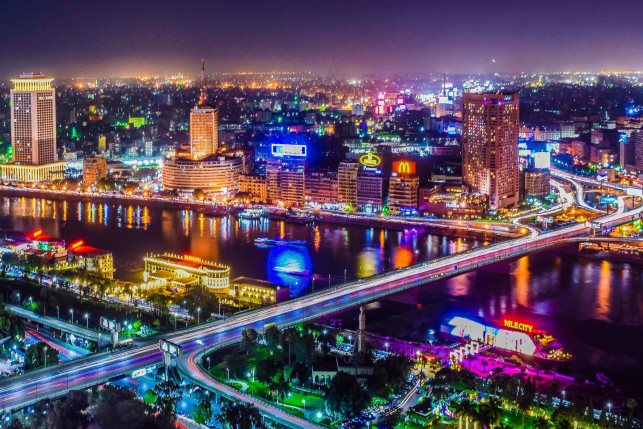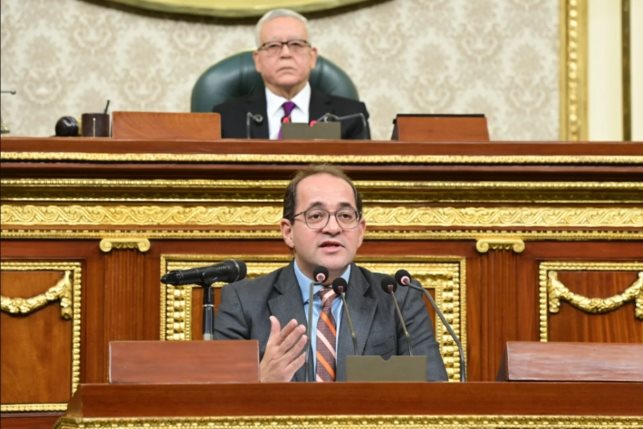Navigating Investment Challenges | Egypt’s Endeavors to Promote The Business Climate
A look into how Egypt is navigating and dealing with the challenges that investors face when entering the Egyptian market, and how the government has been eliminating obstacles and promoting the improved business environment.

Egypt has been vigorously working to create a favorable environment for both local and foreign investors. In recent years, the country has launched several initiatives and has enacted laws to attract investments and improve the business climate.
According to the World Bank’s 2019 Ease of Doing Business Report, Egypt ranks 114 out of 190 economies. Egypt also ranks 93 out of 140 in the World Economic Forum’s latest Global Competitiveness Report.
In terms of the Egyptian market’s strengths and challenges, the UK government’s website published a guidance report on the Egyptian market, entailing its strengths and challenges.
Investors’ Challenges:
Egypt faces several investment challenges that need to be addressed to promote a climate conducive to business. One of the main obstacles is bureaucracy and complicated regulatory framework that can deter potential investors. Streamlining administrative procedures and simplifying regulations would go a long way in attracting both local and foreign businesses.
“The main challenges facing investors in Egypt include excessive bureaucracy and limited access to credit, which hinders the process of setting up companies, securing industrial land, and acquiring the necessary permits. It also imposes a financial burden on foreign investors. The investment climate is also affected by the current slow and unwieldy customs procedures, which impose pressures on the importation of goods or raw materials,” Sherif Fahmy, CEO of N Gage Consulting, told Business Today Egypt.
Fahmy added that another challenge investors face is “weak intellectual property protection enforcement, which discourages them from investing in the country due to the risk of infringement or theft without legal recourse.”
At the same time, Egypt has been facing a foreign currency (FX) shortage due to the Russia-Ukraine conflict, rising inflation, decline in remittances, and foreign investment.
“Investors have also been facing challenges relating to access to foreign currency, which led to a major cash flow issue. Such a challenge is actively impeding investment, especially for investors who rely on the importation of production inputs. In addition, the uncertainty surrounding the exchange rate hinders the investors’ ability to set their investment plans,” Fahmy said.

Government efforts
Earlier this year, Egypt’s Supreme Council for Investment (SCI) issued 22 decrees intended to boost private sector participation in the economy, and facilitate foreign direct investment.
“Our goal is to speed up and facilitate the investment process, and ensure the private sector increases its investments until they are on the same level as the government or even bigger,” Prime Minister Mostafa Madbouly said during the press conference to announce the decisions taken by SCI.
The SCI has released a set of incentives to make it easier to do business through faster and easier licensing and simplified procedures.
“One of the government’s notable efforts is the 22 decrees issued by SCI, which tackled several points that concerned the private sector in Egypt, enabled increased transparency within the government and within the private sector, and facilitated the registration and licensing processes. The decisions also included complete changes to the law on transferring profits to parent and subsidiary companies, which will help avoid double taxation,” Fahmy said.
The Egyptian Cabinet also announced its privatization program to sell its stakes in 35 state-owned companies in February 2023 to strategic investors, via offerings on the EGX, or a mix of both to collect $5 billion from October 2023 until the end of June 2024.
As of the date this article was written, three more companies were added to the list: Eastern Company, Al Ezz Dekhila, and Telecom Egypt.
“The latest decisions by the government are a step in the right direction towards Egypt’s goal of decreasing the economy’s dependence on state-owned entities and increasing the share of the private sector in the economy to 65% from the current 30%,” Fahmy said.
The 35 state-owned companies fall within sectors such as banking, insurance, construction, energy, tourism, oil, energy, and petrochemicals. Egypt has already accomplished 25% of the fourth phase of its Initial Public Offering (IPO) program and has sold equity stakes in state-owned entities worth $1.9 billion, with more deals to be announced soon.
Among the strides that the government has been making to improve the business climate in Egypt is the introduction of the Golden License.
In accordance with Article 20 of Investment Law No. 72 of 2017, the aim of the Golden License is to facilitate and attract investment in strategic national and partnership-based projects between the private and public sectors. This license provides the investor with a single approval that encompasses the establishment, operation, and management of projects, including the necessary building and land allocation permits.
Companies eligible for the Golden License will establish strategic or national projects or public-private partnership projects in specific sectors.
GAFI announced earlier this year that it has granted Golden Licenses to 13 companies already.
“Finally, the country has also been leading a digital transformation strategy to facilitate and develop different industries. Most importantly, it introduced the single-window system in the 2020 Customs Law. Egypt has also been working on creating special industrial and economic zones, such as the Al-Shorouk Industrial Zone in Cairo, the Petrochemicals Zone in Suez, the Borg Al-Arab Industrial Zone in Alexandria, as well as the Special Economic Zone in Egypt (SEZone), which were all established with business-friendly regulations,” Fahmy added.
In August 2023, GAFI completed the electronic incorporation of the Damietta Green Ammonia Production Company in Damietta Public Free Zone. It became the first e-incorporated company in Egypt, part of the first phase of integrating companies through GAFI’s newly launched e-incorporation service on its e-portal.
This comes within GAFI’s plans to improve the quality of services provided to investors, making the process more transparent and less bureaucratic.
“The investor can now establish his company, and pay all fees electronically using an e-signature. GAFI then completes the rest of the procedures with the external bodies related to the company’s incorporation, and then sends documents of the company to the investor via email. Investors will not face bureaucracy again without incurring any additional fees, as the cost of the e-incorporation service is equal to the incorporation cost via investor service centers nationwide,” GAFI CEO Hossam Heiba said in a press statement.
Recommendations and the Way Forward
“The current investment measures being taken by the government will definitely have a positive impact on increasing investment in Egypt, but more steps need to be taken to attract more long-term Foreign Direct Investments (FDIs). For instance, promoting access to financing for MSMEs, further facilitations to doing business in Egypt, and developing a skilled workforce through education and vocational training are a few of the vital [elements] that require an increased focus by the government,” Fahmy explained.
A recurring issue that the Egyptian Cabinet has realized after complaints by investors and economic experts is the lifting of financial and tax burdens.
“Nevertheless, some further efforts could include reducing the financial burdens on investors, increasing policy transparency, offering industrial lands at reduced prices, and granting tax facilitation and exemptions to foreign investors. There is a growing consensus on the importance of the Supreme Council for Investment intervening in matters relating to core industrial operations,” Fahmy emphasized.
Further facilitations to the import of raw materials that are vital for production, meeting export agreements, and reducing production costs are still some of the aspects Egypt needs to tackle. According to Fahmy, stronger competitiveness also means eliminating custom duties on imported inputs and even providing incentives for technology-intensive components.”
*This article was published in our August - September 2023 issue. You can find our latest issue here





